8 Best Indie Religion Books of Spring 2016
Navigating the Ins and Outs of Church and Creed
These days, few words seem to arouse as much conflict as does the word religion. But what if religion (from the Latin religare—to bind again, to bind back) could be lived according to the word’s original meaning: not dividing, but bringing together; not small-minded and insular, but open-hearted and filled with compassion for the whole of creation; not self-centered and “right,” but joyfully participating in the dance of the vast cosmos, ever expanding toward its full potential?
The books featured here offer various visions of what coming together in the great evolutionary cosmic dance could mean for us, both now and in the future that our every action helps to create.
The Mystery of Suffering
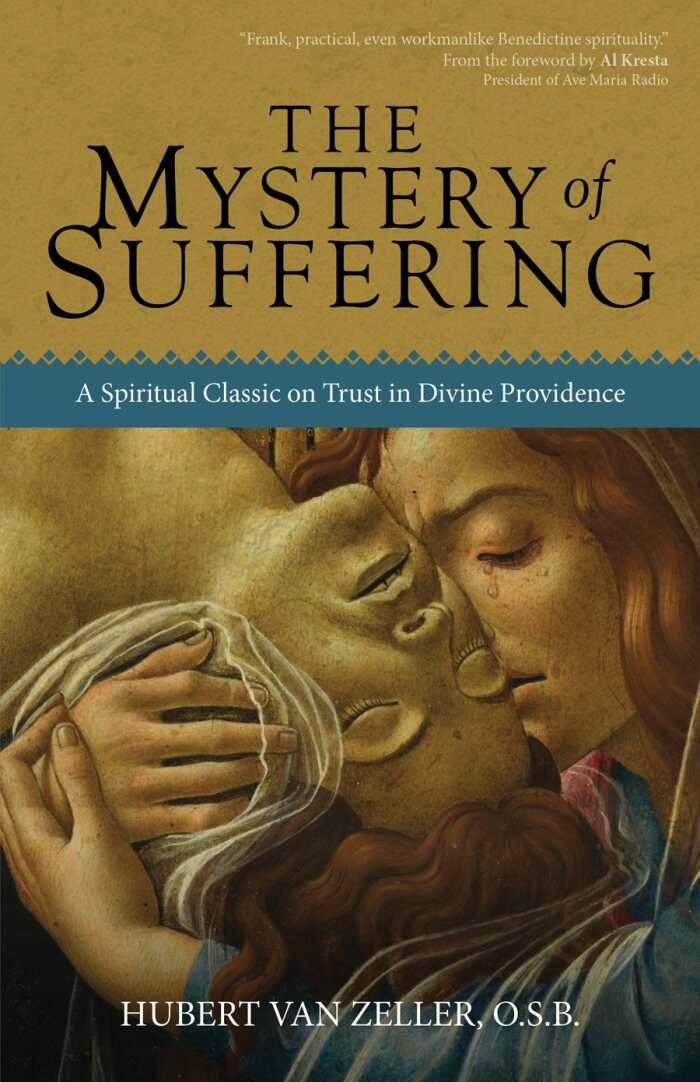
Hubert van Zeller
Christian Classics
Softcover $12.95 (128pp)
978-0-87061-296-1
Buy: Local Bookstore (Bookshop), Amazon
The “weight of evil in the world seems overwhelming,” and it’s easy to lose hope in our ability to resist it, wrote Dom Hubert van Zeller (1905-1984), a Benedictine monk, sculptor, and the author of many books on Catholic spirituality. His 1963 classic, The Mystery of Suffering, reveals a God who doesn’t see the world as we do, but who “must still see the world as good or he would not allow it to continue its existence.” The life of faith becomes about “substituting the supernatural viewpoint for the natural.”
For Dom Hubert, life is a spiritual battle in which our pain, loneliness, and suffering must be met head on. Coming to terms with them, refusing to be governed by them, and learning how to deal with outward and inward frustration are hallmarks of spiritual maturity. “Once the soul has seen, however dimly, that there must be a point in having to undergo the adversity of the moment, and has surrendered to it, there is experienced a detachment which no amount of study or self-devised ascetic practice can bring about,” he wrote.
Calling the cross a signpost that marks the parting of the ways, Dom Hubert teaches that suffering can be redemptive and transformational. “So long as we have got love on our side,” he wrote, “we have the absolute assurance of God that we cannot be beaten.”
KRISTINE MORRIS (February 29, 2016)
The Gate of Tears
Sadness and the Spiritual Path
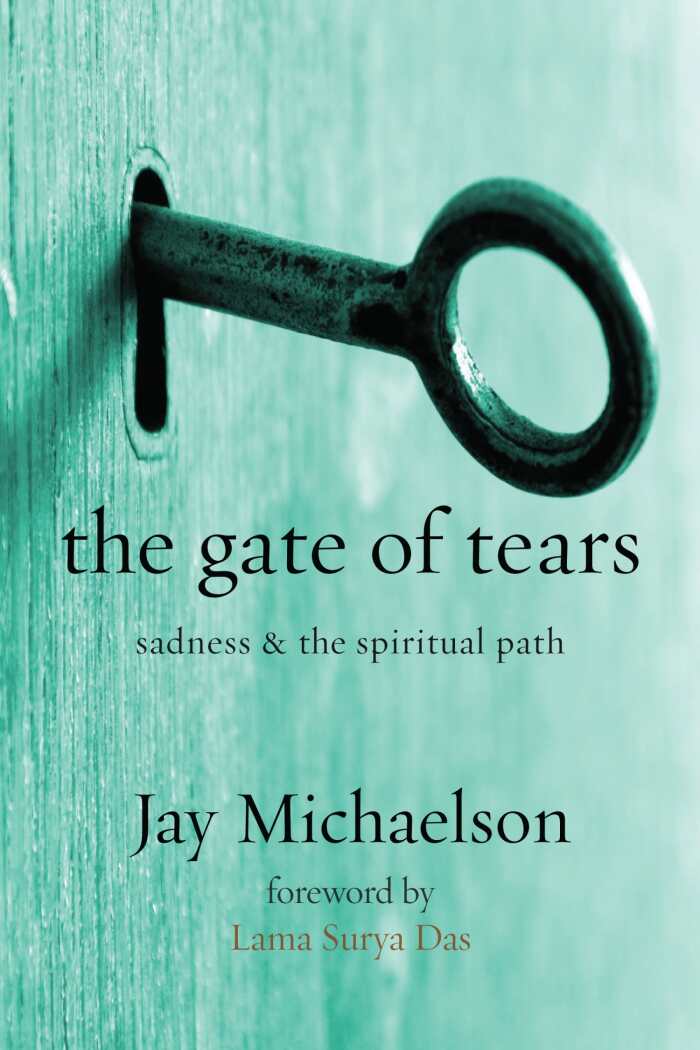
Jay Michaelson
Ben Yehuda Press
Softcover $16.95 (200pp)
978-1-934730-45-4
Buy: Local Bookstore (Bookshop), Amazon
“Don’t worry. Be unhappy. It’s what humans do sometimes,” writes Rabbi Dr. Jay Michaelson. “Life is generally unfair. Illness and death exist. And there will be no explanation that explains it away.” Blending teachings from Buddhist, Jewish, and humanistic traditions, Michaelson ventures into the heart of sadness to reveal it as a powerful gate to healing and wholeness.
The ordinary sadness that is a normal part of life “is often stigmatized, shamed, deemed as a kind of American failure,” he writes, and even religion often acts as though it were possible to erase it, if not now, then in some life after death. But fully living life involves experiencing it in its darker colors, too, and coming to accept and even love the minor chords in its symphony. Michaelson advises that surrendering to our sadness, rather than suppressing it, brings relief, and that the absence of self-deceit that this surrender involves can be a source of joy.
Teaching us how to distinguish sadness from depression and sorrow from despair, Michaelson shows us how to walk through the “gate of tears” into a territory “full of the promise of healing and redemption.” His book is an invitation to awaken to and accept the fullness of our human experience, in which joy and sadness, rather than being opposites, coexist in the complex harmony that is life on Earth.
KRISTINE MORRIS (February 29, 2016)
Life’s Too Short to Pretend You’re Not Religious
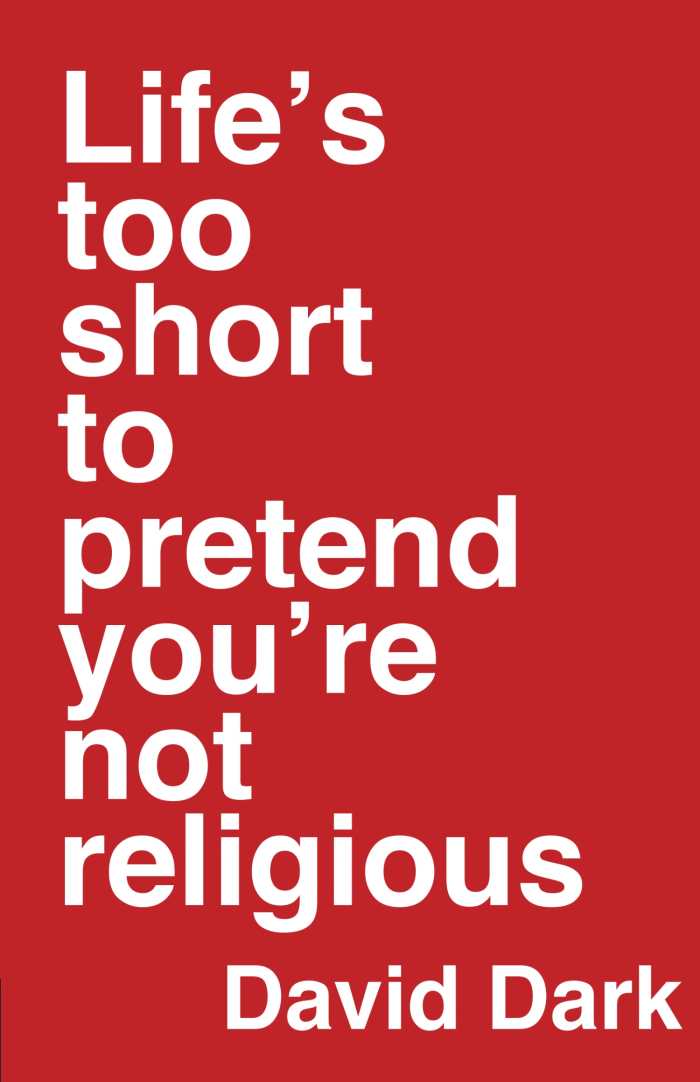
David Dark
IVP Books
Hardcover $20.00 (192pp)
978-0-8308-4446-3
Buy: Amazon
David Dark admits to being “bummed out” by the way people talk about religion. These days being called “religious” is not likely to be taken as a compliment. But Dark doesn’t limit the word’s meaning to adherence to a creed, or to membership in a particular religious group. Instead, he reclaims and expands it to include all that connects and binds us and gives our lives their special flavor.
Dark, an assistant professor at Belmont University and a teacher at Riverbend Maximum Security Institution, writes that all of us, even declared atheists and the “spiritual but not religious,” express our own, authentic religion through what we do on a daily basis. Both the way we live out our stories and the “content of our devotion, our lives and our investments”—our “attention collection”—give clear witness to our true religion.
Dark admits to being a lover of sci-fi, and has an incisive grasp of contemporary popular culture. He writes with humor and wit about our “weird” religious backgrounds and our need to develop a “language of love” based on sharing the things that are most important to us. Saying to someone “I think you might like this” becomes a way of letting them know they have been seen, that we share common interests, and that we welcome their participation in something we hold sacred. Religion so handled is presented as a potent means of overcoming our isolation and building and sustaining community.
KRISTINE MORRIS (February 29, 2016)
Searching for Happiness
How Generosity, Faith, and Other Spiritual Habits Can Lead to a Full Life
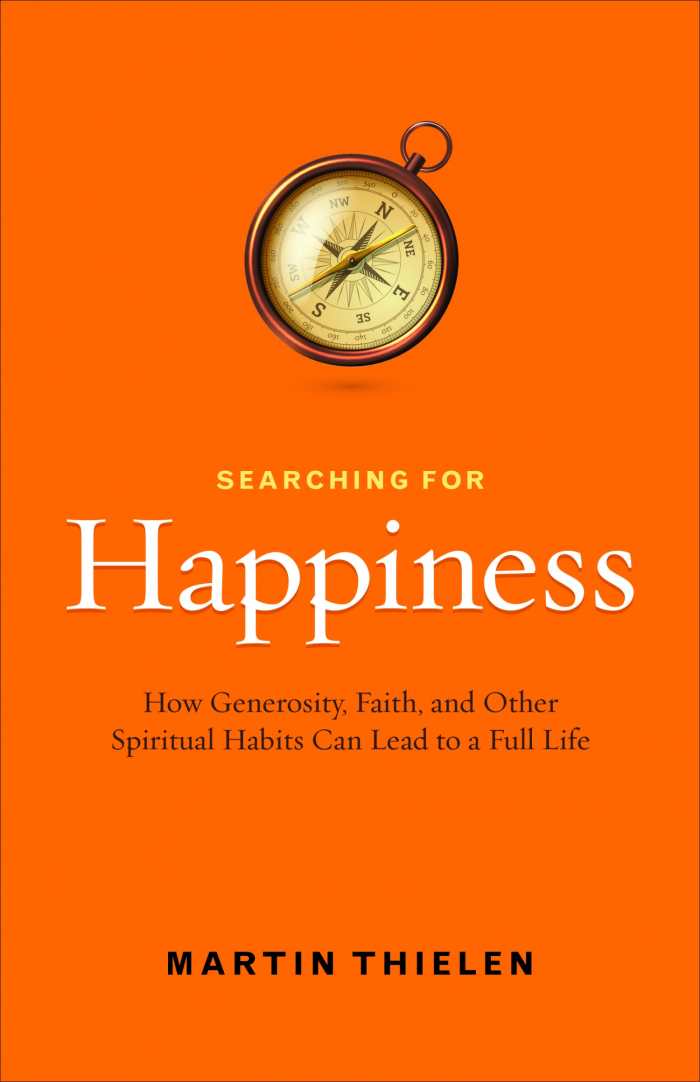
Martin Thielen
Westminster John Knox Press
Softcover $16.00 (192pp)
978-0-664-23712-7
Buy: Local Bookstore (Bookshop), Amazon
“If money, success, and beauty don’t make people happy, what does?” This question, asked by a wealthy, successful, beautiful, but obviously unhappy congregant, led Martin Thielen, a senior pastor at Cookeville United Methodist Church and the author of several books, to take a good look at the extensive research on happiness. He found that people who have minimal income and few material assets—from Pennsylvania’s Amish and Northern Greenland’s Inuit to Africa’s Masai—were reported to have “virtually the same levels of life satisfaction as Forbes magazine’s richest Americans.”
Studies have shown that our health, income level, physical appearance, and marital status account for only about 10 percent of our life satisfaction, and genetics accounts for about 50 percent. Thielen’s book addresses the remaining 40 percent: our attitudes and behaviors. The good news is that this is the part that we can control. In fact, whenever we act with generosity and kindness, our bodies are programmed to release the very hormones that have a long-term impact on our happiness.
Happiness really is an “inside job,” writes Thielen, and this is what people who want to get, and stay, happy do: they turn their trials into opportunities for growth, cultivate optimism, focus on the present, practice forgiveness, nurture relationships, practice generosity, express gratitude, care for their bodies, and care for their souls—all things that are within our reach.
KRISTINE MORRIS (February 29, 2016)
Renewing the Process of Creation
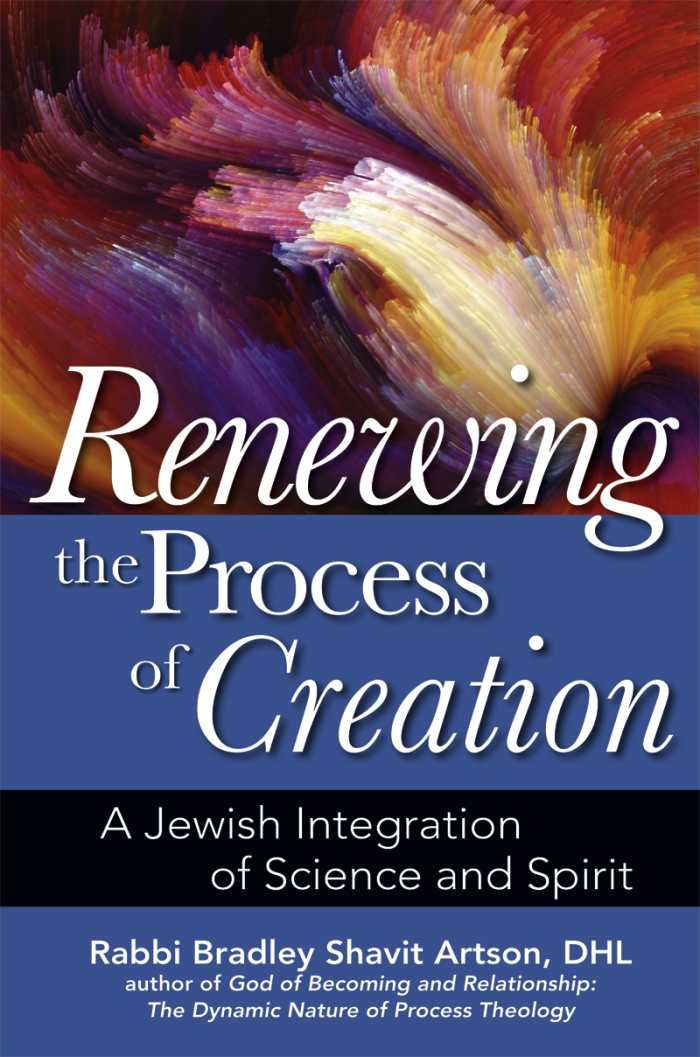
Rabbi Bradley Shavit Artson
Jewish Lights
Hardcover $24.99 (240pp)
978-1-58023-833-5
Buy: Local Bookstore (Bookshop), Amazon
“No religious faith that flies in the face of scientific data can stand for long, nor should it,” writes Rabbi Bradley Shavit Artson, who brings Judaism, process theology, and modern understandings of the cosmos together in this thoughtful, provocative, and eminently readable book. Beginning with an accessible scientific explanation of the world and our place in it, Rabbi Artson moves into an exploration of how science and religion can come together to serve human and planetary thriving and allow us to create meaning from “what actually is, rather than from flights of imaginative fancy.” Especially liberating is his assertion that “God’s primary mode of power is persuasive, not coercive,” and that loving and deeply knowing us, God lures us, and all of creation, in the direction of our highest good.
Rabbi Artson’s profound, lucid, and hopeful book celebrates religion’s ability to empower and inspire, the beauty and complexity of science, the sacredness of life and freedom, and our calling to love and care for our planetary home. “At the end of it all,” he writes, “our task remains to fashion lives of meaning and integrity, to strengthen communities of love and justice knowing what we do about the cosmos we inhabit and embody. … We are all participants in a cosmic drama whose next act has not yet been written,” he writes. “Through our choices and our actions, we will help create tomorrow’s promise.”
KRISTINE MORRIS (February 29, 2016)
The Unexpected Christian Century
The Reversal and Transformation of Global Christianity, 1900-2000
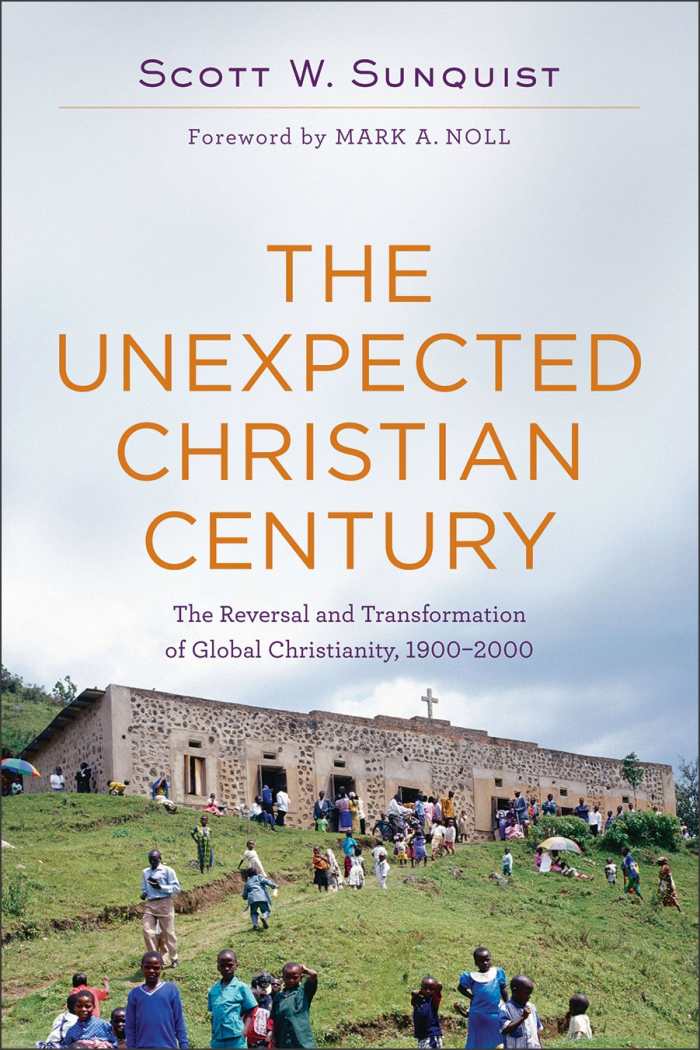
Scott W. Sunquist
Baker Academic
Softcover $22.99 (240pp)
978-0-8010-9746-1
Buy: Local Bookstore (Bookshop), Amazon
In 1900, most of the world was ruled by powerful Western Christian empires, and it seemed reasonable to assume that the dawning twentieth century would be a Christian century. No one could have foreseen the fall of those empires, and no one imagined that Christianity would decline in Europe to find new life in Africa, Asia, Latin America, and the Pacific. This remarkable global reversal is something from which respected teacher and scholar Scott Sunquist says the West has much to learn.
Sunquist gives an eye-opening look at three great transformations in Christian history: the first, beginning in the early fourth century, when the growth of the church became tightly entwined with politics and empire; the second, from the 1450s to the 1550s, as Iberian Christians spread the faith to the far corners of the Earth; and the third, as the twentieth century saw the West lose its place as the global center of the Christian faith, to be supplanted by Asia and the Southern Hemisphere. Today, Christian influence in European culture is practically nonexistent, and there are more avowed Christians in China than in Europe or North America, more Christians than Muslims in Africa, and enthusiastic multitudes of spirit-filled followers of Jesus in Latin America.
Sunquist treats readers to an engaging, non-biased, history-based overview of Christianity’s growth and influence in the world, and highlights the conditions that are needed for Christianity, and Christian communities worldwide, to thrive and flourish.
KRISTINE MORRIS (February 29, 2016)
Crossing the Boundary
Stories of Jewish Leaders of Other Spiritual Paths
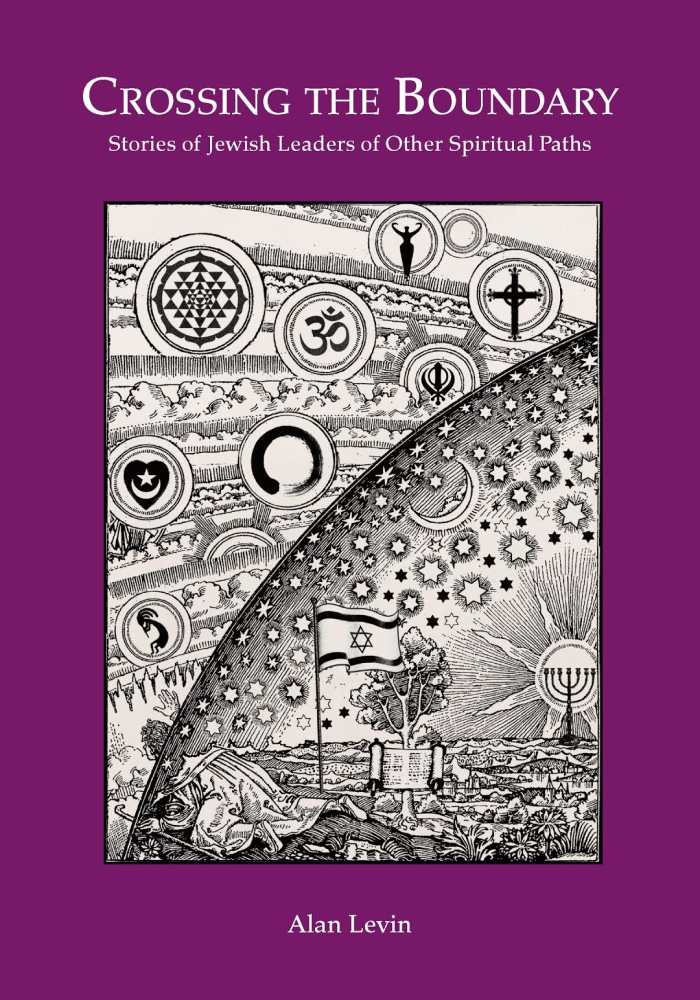
Alan Levin
Regent Press
Softcover $24.95 (456pp)
978-1-58790-317-5
Buy: Local Bookstore (Bookshop), Amazon
During the 1960s, many Jews began immersing themselves in Buddhism, Shamanism, Sufism, Hinduism, yoga, Christianity, Taoism, witchcraft, among other traditions.. In Crossing the Boundary, author and licensed psychotherapist Alan Levin deftly raises questions of personal identity, family, culture, tribal traditions, and heresy as he shares the stories of fourteen Jewish men and women who have become leaders in other spiritual paths. Ten years in the making, Levin’s book illuminates the psychological and spiritual aspects of the human quest to live our truths.
While some of Levin’s interviewees reveal the anguish they felt over having been accused of heresy, or subjected to deprogramming and psychotherapy, or being declared “dead” by their families, others saw much gentler responses to their new pursuits. But despite Jewish parents’ cries of, “What’s a nice Jewish boy (or girl) like you doing with a turban? (Or a crucifix?!!)”, as their sons and daughters became disciples of gurus or made the sign of the cross, Levin suggests that Jewish tradition has a healthy respect for intellectual exploration and encourages curiosity, questioning, and creativity. Few, including the boundary-crossers themselves, would say that they are no longer Jews.
Levin’s sensitive, probing, and provocative book will encourage all who are struggling to understand who they are in the light of their ethnic, tribal, or ancestral identity as they explore their own authentic ways of communing with the sacred.
KRISTINE MORRIS (February 29, 2016)
The Triumph of Faith
Why the World Is More Religious Than Ever
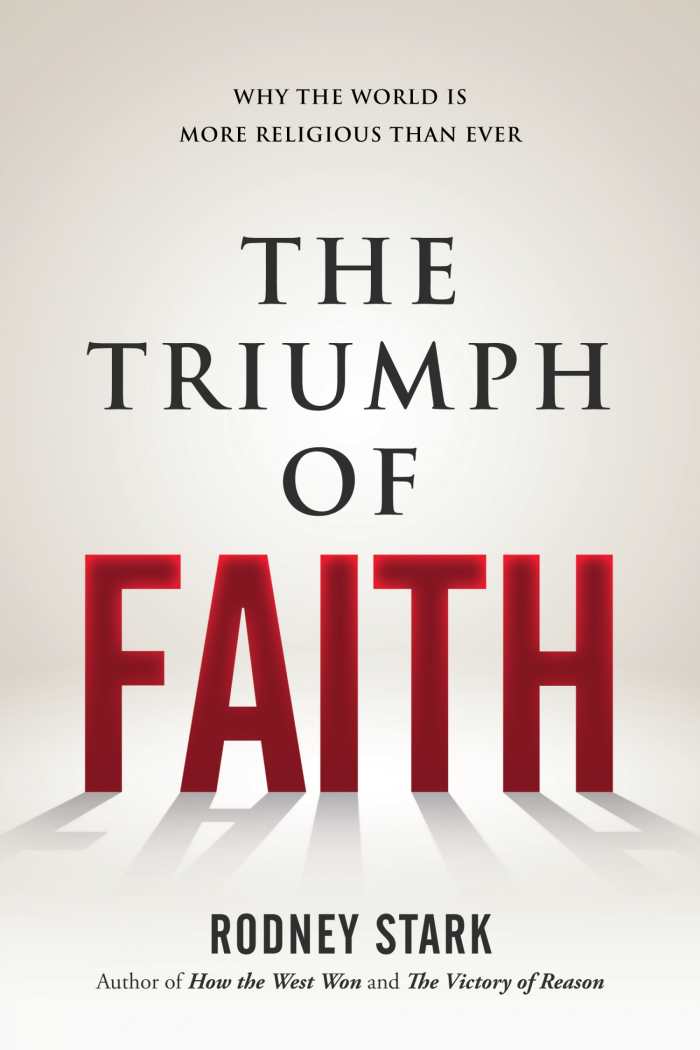
Rodney Stark
ISI Books
Unknown
978-1-61017-138-0
Buy: Local Bookstore (Bookshop), Amazon
For centuries, philosophers have predicted that religion is going extinct. It’s been called a “neurotic illusion” by Freud, and proclaimed “doomed” by many who believed it could not stand up to the findings of science. Recently, popular books by contemporary thinkers like Richard Dawkins have proclaimed the rise of a “New Atheism.” Despite the doomsayers, author and noted scholar of religion Rodney Stark declares that the world is “not merely as religious as it used to be,” but is “much more intensely religious than ever before” and that a “massive religious awakening is taking place around the world.”
Calling upon an amazing body of data, including surveys of more than a million people in 163 countries, Stark shows us why the seemingly unshakeable faith in secularization may be “the most ‘irrational’ of all beliefs.” It turns out that four out of five people worldwide belong to an organized religion, that Christianity is decidedly not being overtaken by Islam, and that there really are very few atheists in the world. In fact, his vigorous and insightful investigation considers current growth trends to predict an increasingly Christian world.
“What this century should tell us,” Stark writes, “is that the message of the gospels is more powerful than human motives, and more gentle than human powers.”
KRISTINE MORRIS (February 29, 2016)
Kristine Morris is a poet, writer, and frequent contributor to Foreword Reviews.
Kristine Morris

